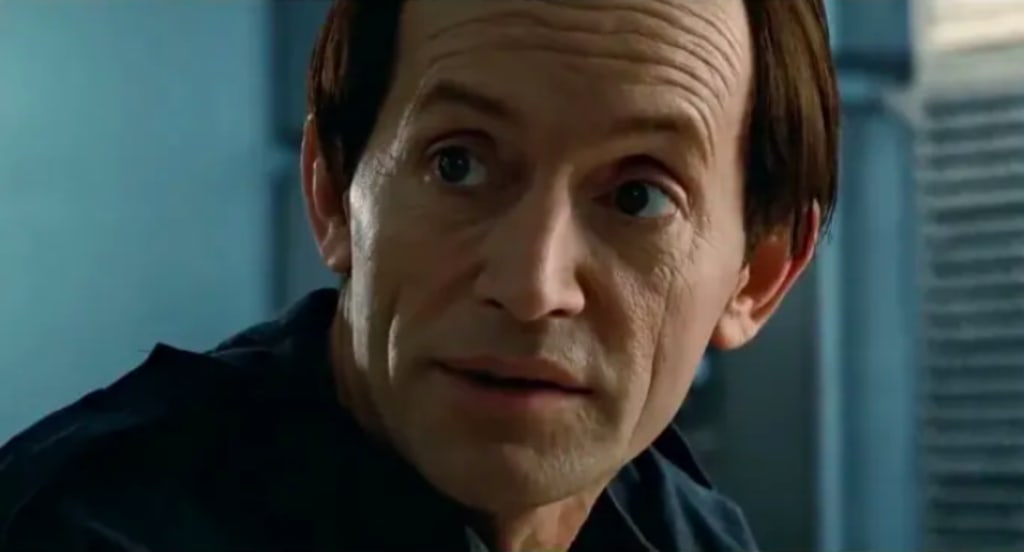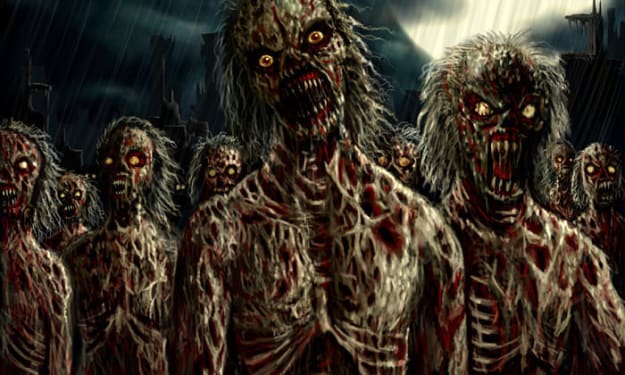Ridley Scott's Androids
His creations are the closest we will ever get to seeing a possible AI future.

We’ve all heard of robots, but have you ever thought of androids? What I mean by that is something that looks and acts completely human, but is in fact a machine underneath. Some examples that come to mind are Terminator, the androids from Ridley Scott's Alien series, and the new synthetics in the video game Fallout 4. In the Terminator series, the robots know that they are in fact not human and are intent on destroying their creators. In the Alien franchise, the androids know that they are not completely human, yet are co-habitating with mankind, and the generation three synthetics from Fallout 4 do know they are not human, yet yearn to be. Though many argue of the possibility of "killer robots" (Terminator, robot warfare, HAL 900 from 2001: A Space Odyssey, etc.), does this mean we should not explore the possibility of having robot companions? That we should allow fear to dominate a possible prosperous future? I think not! I firmly believe in this line from Theodore Roosevelt’s first inaugural address, "The only thing we have to fear is fear itself—nameless, unreasoning, unjustified terror which paralyzes needed efforts to convert retreat into advance." We should not allow our fear to destroy a possible better future, but we should also proceed with caution.
Focusing on the Ridley Scott androids, in the film franchises, we have been introduced to: Ash, Bishop, Call, David, and in the recent addition to the series, Walter from Alien: Covenant. Though the franchise timeline is not in this order, I am going off reality. Such as Alien was released in 1979 and is in the middle of the series, whereas Prometheus was released in 2012, but is the first in the official timeline. Ash is from the first film of the franchise Alien, but is the third Android model to be produced. Therefore, for clarification sake, this is my reasoning for using the years the movies have been released, instead of the official timeline. Ash was a "Hyperdyne Systems 120-A/2 synthetic that was created for Weyland-Yutani in the early part of the 22nd century." (Xenopedia) He is depicted to be extremely loyal to the Weyland-Yutani corporation, due to Special Order 937. This order was a secret command that he had received to ensure the return of the Alien to the company's laboratories, even at the expense of the crew’s lives. Though he did not know this, the program was being used as a sleeper agent which caused him to genuinely have no knowledge of this secret order. Upon confrontation of said order, Ash lashed out at the remaining crew members in order to complete his directive. Had he not been made aware of Special Order 937, Ash would have stayed exactly as he was programmed and created to be.
Then came Bishop, a "Hyperdyne Systems model 341-B." (Xenopedia) Unlike Ash, Bishop had more of a human characteristic programmed in him. Though still loyal to his creators, Bishop knew right from wrong and did not attack any of his crew members for intentional harm and purposes. "It is impossible for me to harm, or, by omission of action, allow to be harmed, a human being." (Xenopedia) What makes Bishop stand out is his ability to show emotion, which hadn’t been seen in earlier models. "As an advanced model android, Bishop was designed and programmed to mimic humans in the closest possible way, although he also possessed inherently superior intellect and reflexes, and was able to create his own reactions to situations." (Xenopedia) An example of this is shown in Aliens when Bishop volunteers to go on a suicide mission in order to save the remaining crew members. He states, "I may be synthetic, but I'm not stupid." His facial features even show a hint of regret in volunteering (whether this is intentional or not), but he himself knows outside of his programming and nature, knows it is not only the best, but also the right thing to do. It is easier if not better to lose an android over a human casualty.
Call—full name Annalee Call—is an Auton. An Auton is a "second generation Synthetics" (machines manufactured by machines) created to revitalize the faltering synthetics industry of the 24th century. Her make and model line of synthetics came after the Bishop line. The purpose of the Autons backfired when they rebelled against their human masters in a bloody event known as "The Recall." (Xenopedia) This rebellion took place due to this production line having a bit more of a human quality to them. This caused them to not appreciate being ordered around as servants, but instead treated as equals. Although Call did not partake in the rebellion, she was forced to go into hiding and hide her true nature and identity. Her humanistic side is shown throughout the film, from taking pity on her paraplegic crew member to taking what would be a fatal gunshot wound in place of Ripley. She is the latest if not last model in the synthetic production line showing the most humanity than previous models, excluding the first David model and the more controlled Walter productions.
Now, there is the "first" android: David. "David was an android commissioned and built by Sir Peter Weyland. He would serve as the basic template for the David 8 and Walter model lines, but was apparently himself unique, possessing creative and emotional capabilities in excess of commercial models." (Xenopedia) As stated, David is the first synthetic to be created in the official timeline—the beginning and possible downfall of synthetics due to his characteristics. His individuality causes him to be insanely dedicated to his creator, Sir Peter Weyland. After he is "born," it doesn’t take more than five minutes for him to ask what his purpose is, to which Weyland states his sole purpose is to serve him, fulfill his desires, and help him achieve any and all goals. David then points out that he will live forever, never changing or aging. and yet, Weyland will die. This frustrates Weyland, showing the origin of why he started to create androids. Weyland wants to be seen at a god status; what better way to do that than create life? Though this will turn out to not be enough, as Weyland will eventually seek immortality. This is the true intent and purpose of the mission in the film.
David acts as the eyes and ears of Mr. Weyland, who is in hypersleep, by: Navigating the Prometheus, keeping tabs on crew members during the film, and informing Peter of anything and everything. The selected crew members believe they are on this expedition to find out who created mankind and why, and do not find out the real truth until near the end—if they live that long. David risks and intentionally kills some of the crew members in order to fulfill his orders, even going as far as to jeopardize himself in the process. Regrettably, Weyland dies at the hand of mankind’s creators. David expresses remorse, if not sadness. Not just for not just losing his father, but failing his mission and losing his purpose.
Walter is the model that was shortly created and produced after the failed and recalled David synthetics. Although he is programmed with emotions, he does not act on impulse or as intensely as the previous David model. He has no emotional needs, though he does become attached to Daniels, a female crew member, and becomes protective of their crew upon interaction with any danger. I would go as far to say that the Bishop and Call productions had their characteristics drawn from the Walter model. He has the ability to express and show emotion but does not overstep boundaries or allow intentional harm to happen to his crew members. He goes out of his way to risk bodily harm to protect Daniels, just how Call took a bullet for Ripley, and even takes it upon himself to enter a hazardous situation, such as Bishop’s suicide mission. Overall, out of all the androids we have been introduced to so far, I believe the Walter synthetic is the best creation Ridley Scott has shown us.
I chose this franchise in order to show the good and bad when it comes to advanced technology. Yes, there is always a risk when it comes to the future and progress, but what of the outcomes and its rewards? Such as vaccines, so many are against it and yet it is needed. Why should we not take the chance to proceed with technological advances? I understand the concern when it comes to our own creations turning on us, though we wouldn’t be where we are today without taking those risks. Such as the AI Sophia, does she creep me out and scare me? Has she said some concerning things in her interviews? Absolutely yes to both questions. Does that mean I believe we should destroy her, turn her off, never create a humanistic machine? No! I believe we should keep trying and proceeding with caution until we achieve our goal or get as close as we can. There is so much potential when it comes to androids; military combat, high-risk exposure, medical procedures, caretakers, companions, the possibilities are endless. I believe we should put our best foot forward and possibly improve our future.
About the Creator
Hannah Kannady
Hello all! I am a junior at the University of Arkansas - Fort Smith, my major is Education. I am striving to become a teacher, specifically in English at a higher level such as high school.






Comments
There are no comments for this story
Be the first to respond and start the conversation.